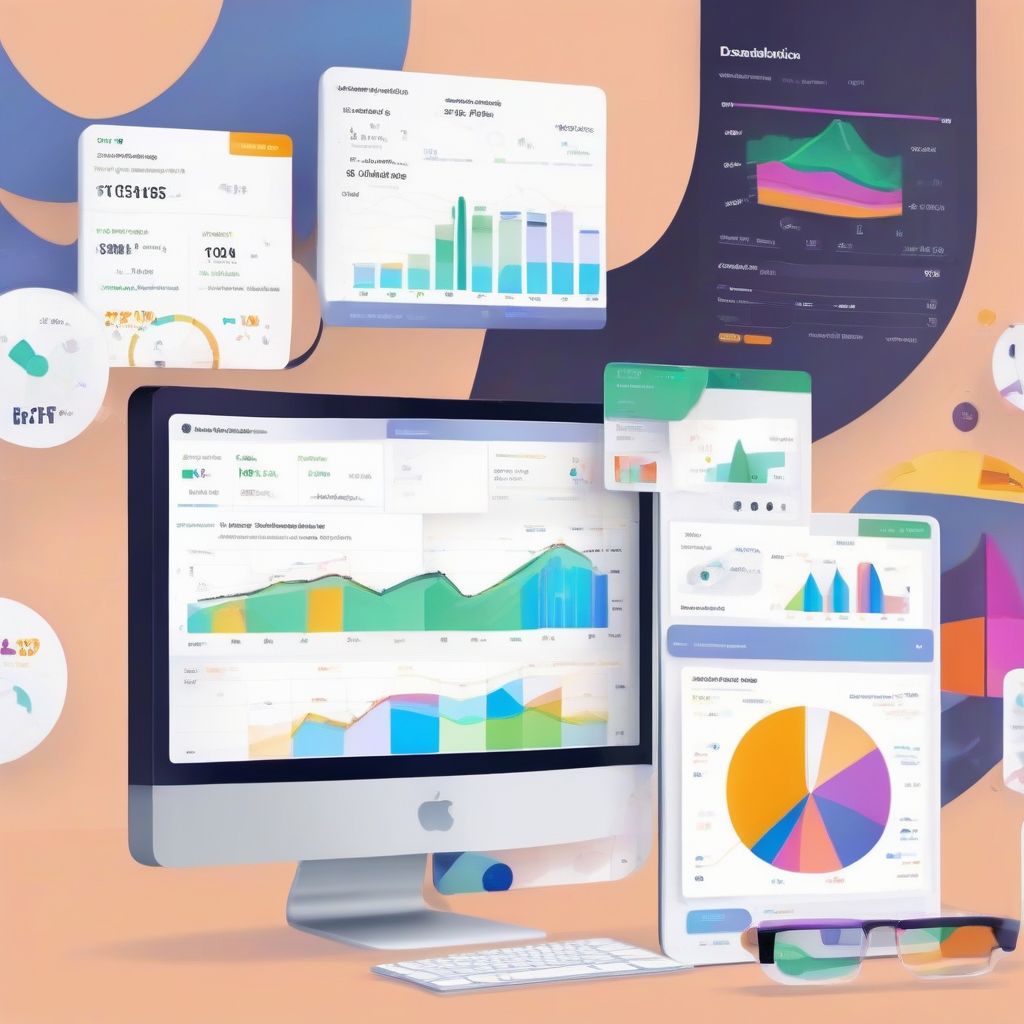Ever dream of effortlessly whipping up a marketing strategy that leaves your competitors drooling? As a nutritionist and meal-prep coach, I understand the power of having the right ingredients and tools to achieve incredible results. In the world of ecommerce, the right marketing tools are your secret sauce to attracting customers, boosting sales, and growing your business.
Think of it like this: you wouldn’t bake a cake without measuring cups, an oven, and a whisk, right? Similarly, you need the best ecommerce marketing tools to manage your campaigns effectively and see those sweet conversions rolling in.
Why You Need Dedicated Ecommerce Marketing Tools
You might be wondering if those all-in-one marketing platforms are enough. While they can be helpful, dedicated ecommerce tools offer specialized features that cater specifically to online stores.
Here’s what sets them apart:
- Deeper Integration with Your Store: These tools seamlessly integrate with your ecommerce platform, pulling data directly from your store’s inventory, sales, and customer information. No more manual data entry!
- Advanced Ecommerce Analytics: Gain valuable insights into your customers’ behavior, track key metrics like conversion rates and customer lifetime value, and identify areas for improvement.
- Marketing Automation Magic: Imagine automating your email marketing, social media posting, and even personalized product recommendations. These tools free up your time so you can focus on strategic decisions.
Essential Tools for Conquering Your Ecommerce Marketing
Ready to transform your marketing from bland to brilliant? Here’s your toolkit for managing ecommerce marketing campaigns like a pro:
1. Email Marketing Platforms: Your Direct Line to Customer Hearts
Email marketing remains a powerhouse for building relationships and driving sales. Choose a platform that allows for:
- Segmentation and Personalization: Tailor your messages based on customer behavior, purchase history, and demographics. Think birthday discounts and product recommendations!
- Automated Email Flows: Set up welcome sequences, abandoned cart reminders, and post-purchase follow-ups to nurture leads and encourage repeat purchases.
- Performance Tracking: Analyze open rates, click-through rates, and conversion rates to understand what resonates with your audience and optimize your campaigns.
Top Contenders: Mailchimp, Klaviyo, Omnisend, GetResponse
2. Social Media Management Tools: Your Social Butterfly Assistant
Juggling multiple social media platforms can be overwhelming. These tools streamline your social media efforts by:
- Scheduling and Publishing: Plan your social media calendar in advance and schedule posts across various platforms from a single dashboard.
- Social Listening: Monitor brand mentions, track industry trends, and engage with your audience across different platforms.
- Performance Analytics: Measure the success of your social media campaigns, identify top-performing content, and track your follower growth.
Top Contenders: Hootsuite, Buffer, SproutSocial, Later
3. SEO Tools: Boost Your Search Engine Visibility
Imagine your ideal customers finding your products organically through search engines. SEO tools are your key to making it happen:
- Keyword Research: Discover relevant keywords your target audience is searching for and optimize your website content and product descriptions accordingly.
- On-Page Optimization: Analyze your website’s structure, identify technical SEO issues, and receive actionable recommendations for improvement.
- Backlink Analysis: Track your website’s backlink profile, discover new link-building opportunities, and stay ahead of the competition.
Top Contenders: Ahrefs, SEMrush, Moz, Google Search Console
4. Analytics Platforms: Uncover the Story Behind Your Data
Data is your compass, guiding you towards better marketing decisions. Robust analytics platforms provide:
- Comprehensive Ecommerce Tracking: Go beyond basic website traffic and understand customer behavior, sales funnel conversion rates, and the performance of your marketing campaigns.
- Customizable Dashboards and Reports: Visualize your data in a way that makes sense for your business and easily share insights with your team.
- Actionable Insights: Turn data into actionable strategies by identifying trends, opportunities for growth, and areas needing improvement.
Top Contenders: Google Analytics, Shopify Analytics, Adobe Analytics
 Ecommerce Marketing Dashboard
Ecommerce Marketing Dashboard
5. Customer Relationship Management (CRM) Systems: Building Lasting Relationships
A CRM system is your secret weapon for nurturing customer relationships and fostering loyalty. It allows you to:
- Centralize Customer Data: Store all your customer information in one place, including contact details, purchase history, and interactions with your brand.
- Personalize Customer Experiences: Segment your customer base and tailor your marketing messages, promotions, and support interactions based on individual preferences and behaviors.
- Improve Customer Retention: Identify and engage with your most valuable customers, address customer concerns proactively, and build brand loyalty that translates into repeat purchases.
Top Contenders: Salesforce, HubSpot CRM, Zoho CRM
[amazon bestseller=”ecommerce marketing”]
Choosing the Right Tools for Your Ecommerce Business
Feeling overwhelmed with options? Here’s how to choose the right tools for your needs:
- Define Your Goals and Budget: What are your top marketing priorities? What resources can you allocate to marketing tools?
- Consider Your Ecommerce Platform: Ensure the tools you choose integrate seamlessly with your existing ecommerce platform.
- Start Small and Scale: You don’t need every tool under the sun! Start with a few essential tools and gradually expand your toolkit as your business grows.
Conclusion: Empowering Your Ecommerce Success
Choosing the right ecommerce marketing tools is like assembling a team of experts dedicated to your brand’s success. These tools empower you to work smarter, not harder, by automating tasks, providing valuable insights, and helping you connect with your customers on a deeper level.
Remember, the most effective tools are the ones that align with your business goals and integrate seamlessly into your workflow. Take advantage of free trials, explore different options, and find the perfect combination that helps you achieve your ecommerce dreams.
Now it’s your turn! What are your go-to ecommerce marketing tools? Share your experiences and tips in the comments below!
